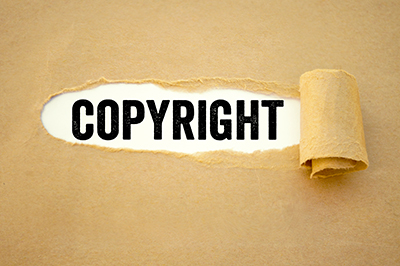
Copyrights
Copyrights protect an author’s works from unauthorized reproduction. The name literally comes from “the right to make copies.” While people usually associate books and music with Copyrights, almost anything that can be copied may be protected by a copyright registration, such as:
Music – including sheet music, lyrics, and sound recordings
Text – everything from novels and poetry to computer software
Performing Arts – Plays, Movies, Choreography, Opera
Visual Arts – Sculptures, Paintings, Photographs, Architecture
Computer Related Works – Websites, Software, Screenshots and Graphic Art
Why Register?
While you can and should use the © symbol on all of your Copyrighted works without registering them, doing so provides you with many powerful benefits. The most important benefit of filing is that if a registered work is infringed, you are automatically entitled to a monetary award. If your work is not registered, you can only collect money from an infringer if you can clearly prove that you have lost income as a direct result of the infringement. It is also easier to be reimbursed for your legal fees if your work is registered.
The Registering Process
A common misconception is that the Copyright Office verifies that your Application for Registration properly classifies and describes the copyrighted work and the nature of your ownership in the work. However, the Copyright Office assumes that you understand the implications of how you fill out the application. If you make a mistake in the filing, you will likely only learn of that mistake when you try to enforce the copyright and discover that your registration is invalid because of seemingly minor technicality. It is therefore important that you have an attorney who really understands the copyright process and the procedures for enforcing copyrights. Bennett IP is experienced in registering copyrights covering everything from poetry and music to Youtube® videos.
